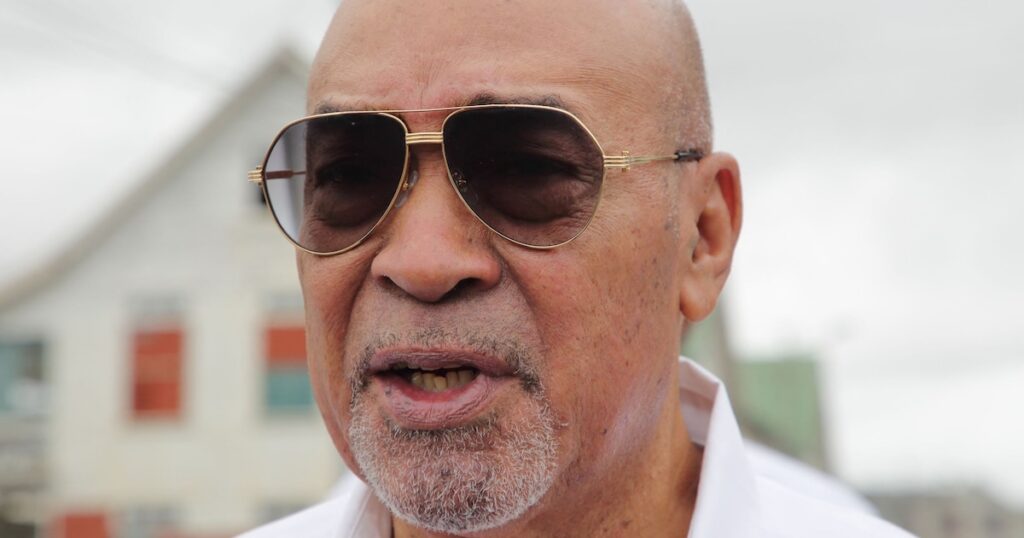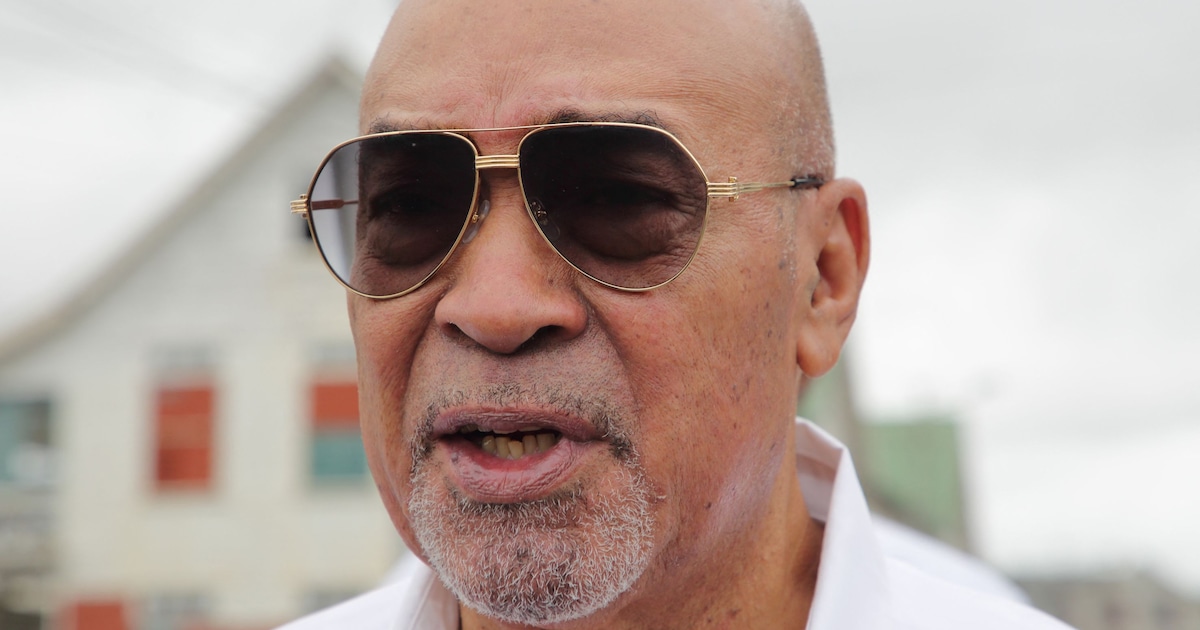
Dési Bouterse: A Controversial Figure in Suriname’s History
Dési Bouterse is a name synonymous with both progress and profound controversy in the history of Suriname. Born Desiré Delano Bouterse on January 21, 1945, in Domburg, Suriname, his life has been marked by military leadership, political ambition, and allegations of human rights violations. Understanding the complex legacy of Dési Bouterse requires navigating a landscape of national pride, economic development, and accusations of authoritarianism.
Early Life and Military Career
Dési Bouterse‘s early life offered little indication of the dramatic role he would later play in Surinamese politics. After completing his education, he joined the Royal Netherlands Army in 1968. He was stationed in the Netherlands before returning to Suriname in 1975, shortly before the country gained independence from the Netherlands. He quickly became a prominent figure in the Surinamese military, leveraging his position to influence the young nation’s trajectory.
The 1980 Coup and Military Rule
In 1980, Dési Bouterse led a military coup that overthrew the democratically elected government of Henck Arron. This event marked a turning point in Suriname’s history, ushering in an era of military rule under Bouterse’s leadership. The coup was initially met with mixed reactions. Some viewed it as a necessary intervention to address corruption and economic stagnation, while others condemned it as an assault on democracy. Dési Bouterse and his fellow officers established the National Military Council (NMC) to govern the country, promising reforms and a more equitable society.
The early years of military rule were characterized by political instability and economic challenges. Dési Bouterse‘s government implemented socialist-leaning policies, seeking to redistribute wealth and nationalize key industries. However, these policies often faced resistance from various segments of Surinamese society, including business owners and political opponents. International relations were also strained, particularly with the Netherlands and the United States, which expressed concerns about the erosion of democracy and human rights.
The December Murders
The most infamous event during Dési Bouterse’s military rule was the December Murders of 1982. Fifteen prominent opposition figures, including journalists, lawyers, and union leaders, were arrested and subsequently executed at Fort Zeelandia in Paramaribo. The killings sparked widespread outrage both within Suriname and internationally. Dési Bouterse and his regime were accused of orchestrating the murders to silence dissent and consolidate power. The December Murders remain a deeply sensitive and controversial topic in Suriname, casting a long shadow over Bouterse’s legacy.
For decades, Dési Bouterse denied any direct involvement in the December Murders, claiming that the victims were killed during an unplanned confrontation. However, in 2007, he accepted political responsibility for the killings, acknowledging that they occurred under his leadership. This admission did little to quell the controversy, and calls for justice continued to grow. The December Murders trial, which began in 2007, has been a protracted and contentious legal battle, further polarizing Surinamese society.
Transition to Democracy and Political Resurgence
Under mounting domestic and international pressure, Dési Bouterse gradually oversaw a transition to democracy in the late 1980s. A new constitution was adopted in 1987, and elections were held, resulting in a civilian government. However, Bouterse remained a powerful force in Surinamese politics, maintaining influence through his political party, the National Democratic Party (NDP).
Despite the controversies surrounding his past, Dési Bouterse experienced a remarkable political resurgence in the 21st century. He successfully rebranded himself as a champion of the poor and marginalized, appealing to a broad base of voters who felt neglected by traditional political elites. His populist rhetoric and promises of economic development resonated with many Surinamese, particularly those who had benefited little from the country’s natural resources.
Presidency (2010-2020)
In 2010, Dési Bouterse was elected President of Suriname, marking a stunning comeback for a figure once considered a pariah by many in the international community. His election victory reflected a deepseated frustration with the status quo and a desire for change among a significant portion of the Surinamese population. However, his presidency was met with skepticism and concern by human rights organizations and foreign governments, who feared a return to authoritarianism.
During his tenure as president, Dési Bouterse pursued a range of policies aimed at promoting economic growth and social development. He invested heavily in infrastructure projects, such as roads, schools, and hospitals, seeking to improve the quality of life for ordinary Surinamese. He also implemented social programs designed to alleviate poverty and provide access to education and healthcare. These initiatives contributed to a period of relative stability and prosperity in Suriname, although critics argued that they were often financed through unsustainable borrowing and short-term gains.
However, Dési Bouterse’s presidency was also marred by controversy. The December Murders trial continued to cast a shadow over his leadership, with critics accusing him of using his position to obstruct justice and shield himself from accountability. In 2019, he was convicted of murder for his role in the 1982 killings, but he remained in office while appealing the verdict. This situation created a constitutional crisis and further polarized Surinamese society. [See also: Political Crisis in Suriname]
In addition to the December Murders trial, Dési Bouterse faced accusations of corruption and abuse of power during his presidency. Opponents alleged that he used his office to enrich himself and his allies, undermining the rule of law and eroding public trust in government. These allegations contributed to growing discontent with his leadership, ultimately leading to his defeat in the 2020 presidential election.
Legal Challenges and Current Status
Following his defeat in the 2020 election, Dési Bouterse has continued to face legal challenges related to the December Murders trial. His conviction was upheld by an appeals court in 2021, and he was sentenced to 20 years in prison. However, he has thus far avoided imprisonment, citing health reasons and pursuing further legal appeals. The ongoing legal saga surrounding Dési Bouterse remains a focal point of political debate in Suriname, highlighting the country’s struggle to come to terms with its past. [See also: Suriname’s Justice System]
The legacy of Dési Bouterse is complex and contested. While some view him as a revolutionary leader who sought to improve the lives of ordinary Surinamese, others condemn him as an authoritarian figure responsible for human rights abuses and political violence. His impact on Suriname’s history is undeniable, and his name will forever be associated with the country’s turbulent journey from independence to democracy. Understanding Dési Bouterse requires acknowledging both his achievements and his failures, and grappling with the difficult questions he raises about power, justice, and reconciliation. The story of Dési Bouterse and Suriname highlights the challenges faced by many post-colonial nations as they navigate the complexities of nation-building and strive to create a more just and equitable society. [See also: History of Suriname]
His story serves as a cautionary tale about the dangers of unchecked power and the importance of upholding the rule of law. The case of Dési Bouterse prompts reflection on the long-term consequences of political violence and the challenges of achieving genuine reconciliation in the aftermath of conflict. As Suriname continues to grapple with its past, the legacy of Dési Bouterse will undoubtedly remain a subject of intense debate and scrutiny for generations to come.
The final chapter of Dési Bouterse’s life is yet to be written, but his influence on Suriname is indelible. Whether he will ultimately face justice for the December Murders remains to be seen, but the ongoing legal proceedings serve as a reminder of the importance of accountability and the enduring quest for truth and reconciliation. The name Dési Bouterse will forever be etched in the annals of Surinamese history, a symbol of both hope and despair, progress and repression.
The narrative of Dési Bouterse underscores the intricate relationship between political ambition, military power, and the pursuit of justice. His story serves as a crucial case study for understanding the complexities of post-colonial politics and the challenges of building stable and democratic institutions in societies grappling with legacies of conflict and authoritarianism. The name Dési Bouterse will continue to evoke strong emotions and spark debate in Suriname for many years to come.

